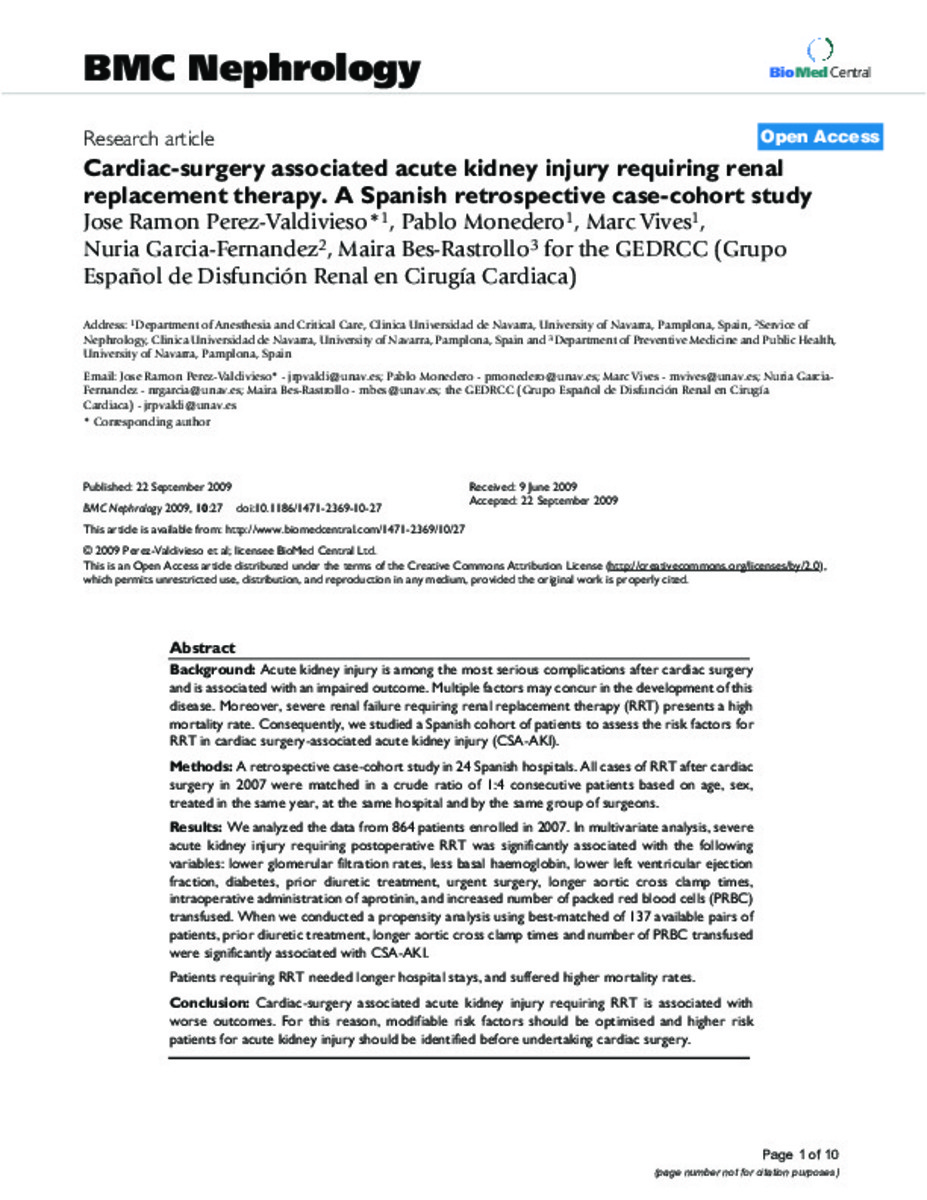Cardiac-surgery associated acute kidney injury requiring renal replacement therapy. A Spanish retrospective case-cohort study
Keywords:
Acute Kidney Injury/mortality/therapy
Cardiac Surgical Procedures/mortality
Renal Replacement Therapy/mortality
Publisher:
BioMed Central
Citation:
Perez-Valdivieso JR, Monedero P, Vives M, Garcia-Fernandez N, Bes-Rastrollo M, GEDRCC (Grupo Espanol de Disfuncion Renal en Cirugia Cardiaca). Cardiac-surgery associated acute kidney injury requiring renal replacement therapy. A Spanish retrospective case-cohort study. BMC Nephrol 2009 Sep 22;10:27.
Statistics and impact
0 citas en

0 citas en

Items in Dadun are protected by copyright, with all rights reserved, unless otherwise indicated.







